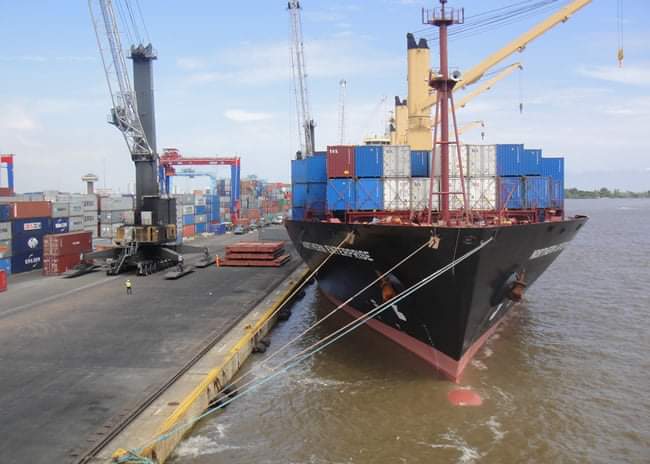Trade liberalisation is quite an emotive issue that has remained unpopular with many. It represents the removal of barriers on seamless exchange of goods and movement of people in a bid to facilitate free trade between nations through the instrumentality of a free trade agreement.
This kind of agreement has spawned not a few continental free trade areas like the Northern Atlantic Free Trade Area (NAFTA), European Free Trade Association (EFTA), South Asia Free Trade Area (SAFTA) and Pacific Alliance.
In the eyes of its opponents, it ensures that the local industries have a snowball chance in hell to survive for want of capabilities. Basically, the disquiet is pivoted inter alia on asphyxiation of local industries by stiff competition from influx of cheaper goods resulting into the weakening of the manufacturing base with concomitant hemorrhage of jobs and contraction in Gross Domestic Product (GDP); dumping of substandard goods; disregard for the health of the environment as a result of intense competition and promotion of re-shoring due to the attraction of cheaper labour.
For instance, the Northern America Free Trade (NAFTA) signed by U.S, Canada and Mexico which took effect in 1994 was shaken to its foundation by President Donald Trump having considered the agreement prejudicial to American manufacturing interest.
However, the proponents of trade liberalisation continue to extol its virtues and capacity to facilitate economic growth. President Ronald Reagan in a radio address on international trade in August 6, 1983 posited that “the winds and waters of commerce carry opportunities that help nations grow and bring citizens of the world closer together. Put simply, increased trade spells more jobs, higher earnings, better products, less inflation and cooperation over confrontation. The freer the flow of world trade the stronger the tides for economic progress and peace among nations.”
ADVERTISEMENT
Today, the world has come to terms with free trade through diverse trade agreements gradually making the idea of protectionism not just anathema but anachronistic. It’s no longer news that Africa has swelled the number of continental free trade areas through the birth of the African Continental Free Trade Area (AfCFTA) in 2018, which is the largest in the world in term of number of participating countries. A World Bank report described AfCFTA as representing a major opportunity to boost growth reduce poverty and broaden economic inclusion.
Nigeria dithered on its consent to the agreement which according to report was on the need to hold consultations with trade unions and local manufacturers. And when Nigeria eventually signed the agreement in July 7, 2019 at Niamey, it was much to the relief of other African countries who waited with bated breath. The agreement will go into effect by January 2021. Already, the rubber has hit the road with Nigeria depositing its instrument of ratification for AfCFTA with African Union (AU) legal depository on December 5.
The agreement has effectively collapsed the African borders through the removal of tariffs and non-tariff barriers, thus creating a single market for goods and services and facilitating the free movement of people, capital goods and services. It has created a market of about 1.27 billion people with a combined GDP of $2.14 trillion. The market is projected to grow to about 2.5 billion consumers by 2050.
Interestingly, it presents a unique opportunity for structural economic transformation to Nigeria. The country’s continued dependence on oil has placed it on a public finance nightmare due to the vagaries of oil prices.
The inability of many nations according to United Nations Conference on Trade and Development (UNCTAD) to diversify their economy from a single commodity has continued to put them at the mercy of international market prices with socio-economic and environmental consequences. The frightening rush by advanced economies in phasing out the use of fossil fuel powered vehicles with deadline as early as 2025 should add urgency to the hunt for revenue alternative.
In 2018, Nigeria export value to African countries according to Nigeria Export Promotion Council (NEPC) boss pushed beyond $6.99 billion while to the rest of the world reached $45.92 billion. He further added that Nigeria’s export is majorly crude oil and natural gas which constitute 91%.
AfCFTA is bound to help diversify Nigeria’s trade and incentivize a move away from extractive commodity like crude oil to more sustainable export base. The extractive export which drives the country’s trade is less labour-intensive than manufactured and agricultural goods which will be veritable sources of jobs and inclusive growth.
Instructively, AfCFTA agreement is in congruence with the Economic Recovery and Growth Plan (ERGP) which focuses on industrialization, value addition driven export and improvement on economic competitiveness. For good measure, it holds attraction for the inflow of Foreign Direct Investment (FDI) which infuses capital in expanding local industries and boost businesses as well as lead to transfer of technology. Such flows of capital can strength the financial system thereby stimulating investments.
The inevitable competition against local industries that the initiative provokes will no doubt be enormous but could serve as a force for good by digging deep into the well of ingenuity and resourcefulness in improving production processes.
By and large, the interplay of epileptic supply of power, deficit in infrastructure, lack of skilled labour, extortionate cost of credit and insecurity are powerful enough forces that can strangulate the competitiveness of Nigerian businesses and products. So, creating a more open and business friendly environment to thrive is pivotal.
For AfCFTA to be an instrument of growth for the economy, it will largely depend on government policy responses and interventions in propping up local industries. So, government support of businesses to establish strong footprint across Africa will prime them in the long run to compete at the global stage.
By Abachi Ungbo


